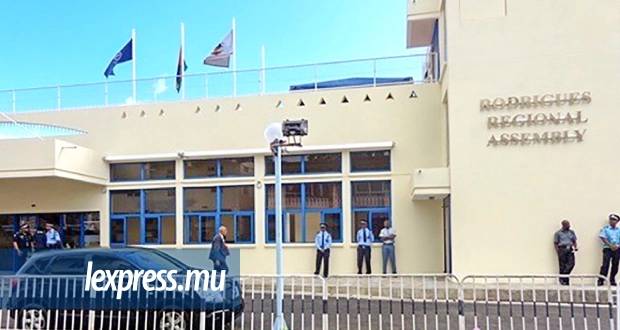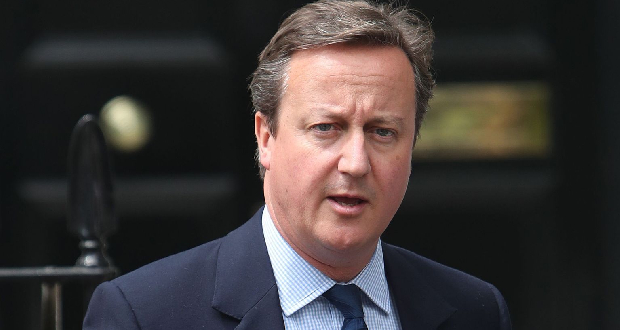Publicité
Regional assembly elections 2022: How does Rodrigues vote?
Par
Partager cet article
Regional assembly elections 2022: How does Rodrigues vote?

In the coming days, Rodriguans will go to the polls to elect their new regional assembly. Unlike the Westminster-inspired electoral system in Mauritius, local elections in Rodrigues take place in a more complex mixed-first past the post and proportional representation system. So how do these elections work? And what does this mean for the upcoming one?
1.The election process
On February 27, Rodriguans will head to the polls to vote the members of the Rodrigues Regional Assembly (RRA). This, after the polls were initially scheduled for February 13, but delayed to February 27, due to the Covid-19 spread in the island, with the number of cases reaching 6,717 by February 15, after the first case was detected on January 26.
The elections to the RRA, however, differ markedly from how voting takes place in Mauritius at both the national and local levels. So how does Rodrigues vote for the RRA? The 17 seats of the RRA are allocated in a two-stage process. The first is the allocation of 12 seats from local regions. According to section 8(6) of the Rodrigues Regional Assembly Act, “the persons who are to be returned as members for each of the local regions shall be elected before it is determined who are to be returned as members for the Island Region”. Like the 20 constituencies of Mauritius, Rodrigues is divided into six local regions: La Ferme, Maréchal, Saint-Gabriel, Baie-aux-Huîtres, PortMathurin and Grande-Montagne. Each electing two candidates to the RRA. At the elections of the RRA, each Rodriguan voter casts three votes on the ballot, two for candidates at the local region and one vote for a party at the island region level.
The local region seats are allocated on the basis of first-past-the-post, with the candidates winning a plurality of votes in each of the local regions winning a seat at the RRA. So far, so familiar. It is at the second stage of the process, however, that the distinction between elections to the National Assembly in Mauritius and to the RRA kick in. This is for the five island region seats that are calculated using a proportional representation formula. Section 10 of the RRA Act reads that, “in order to calculate the Island region figure of a registered political party having submitted a list of candidates for election as members for the Island Region, the total number of island region votes given for each such registered political party shall be divided by the aggregate of one and the number of candidates of the party returned as members for the various local regions”. To qualify for any of these five seats, a party should get at least 10 percent of the vote island-wide, the idea being to strike a fair balance between the amount of votes each party gets and the number of local region seats it got through the first-pastthe-post system.
This arrangement carries two implications for political parties looking to win the five island region seats. The first is that parties that have submitted party lists to win the proportional representation seats, but that have not got the minimum 10 percent of the vote required are not included in the exercise. As happened in the case of the ‘Muvman Independantis Rodriguais’ in the last RRA elections in 2017 when it got just 1.88 percent of the island region votes, it was not allocated any island region seats. The second implication is that since the island region seats are meant to counter an inflated majority that the first-past-the-post can deliver in the case of local region seats, any party wishing to get any of the five island region seats must also put up candidates for the local region seats.

As Johnson Roussety’s FPR found out to its chagrin in the 2017 RRA elections. In the run-up to those elections, the FPR submitted a party list for island region seats on January 26, 2017, without registering any candidates to fight the local region seats. The party was barred from doing so by the Electoral Commissioner’s Office (ECO). The FPR then went to the Supreme Court. In a judgement on February 3, 2017, the court backed the ECO’s decision and ruled that the entire electoral system for the RRA in Rodrigues is “a comprehensive mechanism for the practical implementation of a proportional representation system. The working of such a system under the Act (the RRA Act – ed.) would be vitiated and completely distorted if political parties do not contest local region elections but simply submit party lists for island region seats only. This is reflected neither in the wording of the legislation nor in the first past the post cum proportional representation system prescribed under the Act”.
“Rodriguan politics has always been marked by closely contested elections and a rich history of floorcrossing.”
2. How the system has worked in the past
Since the RRA Act was passed in 2001, there have been four elections to the RRA so far. Prior to an amendment to the RRA Act in 2016, the RRA was made up of 18 seats, with 12 local region seats and 6 island region seats.
The first RRA election in 2002 was largely a twohorse contest between the OPR led by Serge Clair and the MR of Nicolas Von Mally. The OPR won 54.97 percent of the vote and bagged eight out of 12 local region seats with the MR, although it was close behind with 43.56 percent of the vote left with only 4. To compensate for the lopsided result produced at the first stage, where with a narrow margin the OPR ended up with double the number of local region seats as compared to the MR, in the second stage, with the allocation of the proportional representation (island region) seats, the OPR was allocated two and the MR four of these seats. The OPR ended up with 10 and the MR with 8 seats in the RRA.
The second RRA election in 2006 was similarly a two-sided affair between the OPR and the MR. But this time going the other way: despite winning 55.8 percent of the vote, the MR won just six local region seats, the same number as the OPR, despite it getting just 43.1 percent of the vote. This was corrected at the level of the island region seats, of which the MR was allocated four and the OPR two to better reflect the higher vote share of the MR, but which did not deliver it a majority at the first-past-thepost stage. The MR ended up with 10 and the OPR with 8 seats at the RRA.
The most controversial, however, was the 2012 RRA election. This was because the duopoly of the OPR and the MR had turned into a three-cornered fight with the emergence of Roussety’s FPR. The OPR won 46.78 percent of the vote and eight local region seats followed closely by the MR who won 42.08 percent of the vote but only four island region seats. The FPR, though, won 10.67 percent of the vote, making it eligible for additional island region seats, but failed to win a single local region seat. The allocation of the island region seats gave the MR four and the FPR two island region seats. The result threatened to deliver a ‘hung parliament’ with the OPR and the MR with eight seats each and the FPR with two. That is where as fail safe in section 11(10) of the RRA Act kicked in to prevent an overturning of the result at the local region level: “where, following the return of the Island region members… a registered party having obtained 7 or more of the 12 local region seats, finally finds itself with a total of less than 10 of the 17 seats, there shall be allocated to that party such number of additional seats as may be necessary to ensure that it disposes in the Regional Assembly of an overall majority of 3 seats”. In the case of the 2012 RRA election, the OPR was given three extra seats to give it a majority of 11 seats at the RRA with the MR left with 8 and the FPR with 2 seats, bringing the total membership of the RRA exceptionally up to 21.
3.The change to the system
The 2012 RRA result did two things: first, it convinced parties sceptical of the proportional representational system to continue to dig in their heels. When presenting their own unsuccessful electoral reform bill in Mauritius in December 2018, the MSM government reached back to the example of what happened in Rodrigues in 2012. “Is it democratic to make a winner a lesser winner or a loser a lesser loser or a winner? Rodrigues has lived with that sort of quagmire after the past RA elections,” Sir Anerood Jugnauth told the Mauritian parliament on December 7, 2018. Explaining how the MSM-led government came up with its own electoral reform bill in 2018, SAJ said, “We worked on the proposals from that angle and with the objective not, in any way, to alter the initial difference between the number of constituency seats obtained by the winning party and the second party…” The bill simply came up with a parallel formula to allocate proportional representation seats that, rather than correcting, simply reproduced the glaring problems of the first-past-the- post, defeating the whole point of electoral reform and failing to win support from the opposition parties.
Second, the 2012 result led the OPR to also throw its weight behind trying to get rid of proportional representation from the system in Rodrigues. So, when in 2016, the Mauritian government canvassed opinion in Rodrigues to amend the voting regime to the RRA, the OPR demanded that the dose of proportional representation there in the form of the island region seats be abolished. What these reactions seem to have missed is that Rodriguan politics has always been marked by closely contested elections and a rich history of floor-crossing with the added complication of 2012 being a three-cornered fight.
The 2016 amendment to the RRA Act reduced the number of island region seats elected via proportional representation from 6 to 5 and included a one-third quota for women candidates, patterned on the Local Government Act in Mauritius, which was credited for boosting the number of female municipal election candidates in Mauritius from 98 in 2012 to 166 in 2015, aside from other measures. The 2017 RRA elections saw the OPR win 10 local region seats and no island region seats and the MR getting two of the former and five of the latter.
4.The upcoming poll
The present election threatens to lead to a repeat of the complications resulting from the 2012 RRA election in Rodrigues. Firstly, because this too is fast becoming a three-cornered fight with the OPR defending its turf on the one hand and facing two other groups: a grand alliance between the Rodriguan PMSD (contesting an RRA election for the first time – but showing its strength in the 2019 general election in Rodrigues), the FPR and the UPR – a splinter group led by Franceau Grandcourt that broke away from Von Mally’s MR in 2020 – and other smaller parties. And the second being Von Mally’s MR that until now has been the OPR’s chief opponent in past RRA elections. So far, the MR has resisted the PMSD’s appeal for the opposition to come together to unseat the OPR.
The second reason is that there is no consensus in two out of these three sides yet as to who will bag the top job of Chief Commissioner: with Serge Clair announcing on January 13, that he was not taking part in the upcoming RRA election, the OPR has not yet announced its candidate and the PMSD-FPR-UPR arrangement too has not made its intentions known as yet. Whether history will repeat itself and Rodrigues will see another 2012 can only be answered, once the votes start coming in.
Publicité
Les plus récents






